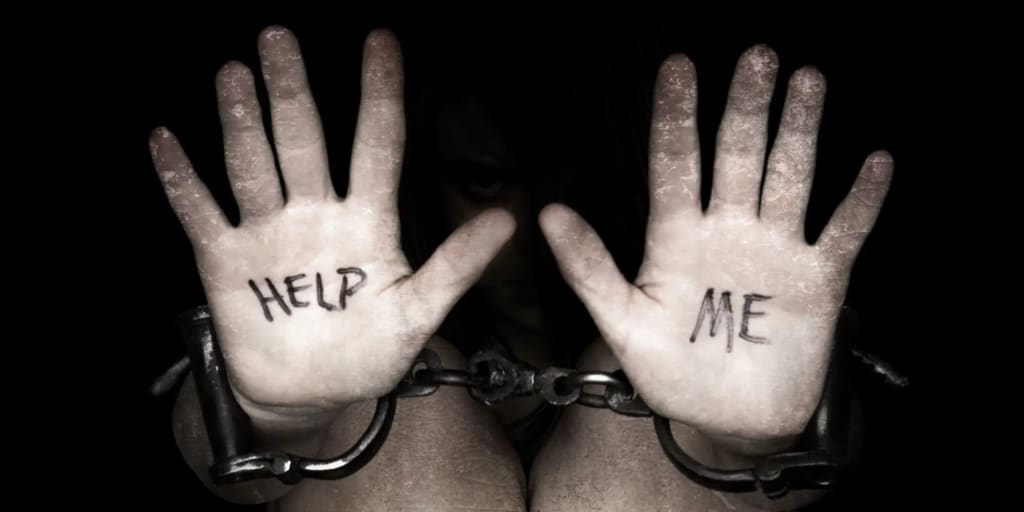The Dark Reality of Organ Trafficking
A Global Perspective

Around the world, from Los Angeles to South Korea, filmmakers have tapped into organ trafficking as a uniquely horrific subject. Yet, this horror isn't confined to the realm of fiction—it's a disturbing reality that exists in various parts of the globe. Organ traffickers view the human body as a collection of products to be stolen or bought cheaply and resold for astronomical prices. This red trade, as it's often called, isn't a Hollywood creation; it's a grim reality with origins in modern-day Africa, Asia, and the Middle East.
In many villages, the desperation and poverty drive individuals to sell their organs. For instance, in one village alone, more than half of the residents have sold a kidney. This horrific trade is not only an international issue but is also creeping closer to home, with rumors of organ trafficking bubbling up in North America. The question remains: how much would you pay to save your life?
The Human Cost of Desperation
Garrett Row, a man battling severe kidney failure, spends nine hours each night hooked up to a dialysis machine. His life was upended when a routine checkup revealed that his kidneys were shutting down. Despite being on a transplant list for nearly two years, Garrett knows that his chances of getting a kidney in time are slim. The average wait time for a kidney transplant is around seven years, and without it, the prognosis is grim. This situation forces many patients like Garrett to contemplate desperate measures.
In the United States alone, 17 people die each day waiting for an organ transplant. In 2020, over 39,000 Americans received transplants, but more than 100,000 remained on waiting lists, hoping for a miracle. The harsh reality is that the demand far outstrips the supply, leading some to consider the unthinkable: turning to the black market.
A Grim Marketplace
Peter Chin-Hong, an infectious disease doctor in San Francisco, reveals that black market organs are more prevalent than most would believe. At least 10% of transplants involve organs obtained through illicit means, though the actual number is likely higher. The stigma, fear, and potential legal consequences keep many recipients from disclosing the truth about their transplants. The origins of these organs are often traced back to countries like the Philippines, China, India, and Eastern Europe.
Social media platforms are rife with posts advertising organs for sale, typically from individuals in developing countries. This dark trade preys on the most vulnerable, exploiting their desperation for survival. With the ongoing migrant crisis at the US borders, there is a growing concern that organ trafficking could be happening closer to home.
Investigating the Underworld
In Colombia, where drug cartels have long held power, reports suggest that these criminal organizations are now involved in organ trafficking. The region of Turbo, controlled by the notorious Clan del Golfo, is a hotbed for smuggling activities. The lack of roads connecting Colombia and Panama forces all northbound traffic through the treacherous Darien Gap, a journey controlled and taxed by the cartels.
Meeting with cartel operatives, like the commander who oversees smuggling routes, provides a glimpse into this dangerous underworld. The trade in organs is shrouded in secrecy, making it incredibly difficult to report and even harder to combat.
The Human Toll
In places like Necoclí, a town in Colombia, migrants gather before embarking on the perilous journey through the Darien Gap. Here, the desperation is palpable, and rumors of organ trafficking are widespread, though concrete evidence is elusive. Interviews with local police and migrants reveal a pervasive fear and uncertainty.
One particularly chilling encounter is with a man known as "El Deshuesador" (The Wrecker), who confirms the existence of organ trafficking in the region. The gruesome video evidence he provides is a stark reminder of the brutality involved in this trade. The organs, removed from dead bodies in makeshift surgical settings, are treated as commodities rather than life-saving tissues.
The Role of Organized Crime
In Mexico, organ trafficking is similarly entangled with organized crime. Interviews with individuals involved in the trade reveal a complex network of scouts, doctors, and cartels facilitating these illicit transplants. One scout, Anhel, describes how he recruits donors and ensures compatibility before organs are sold, often to American recipients.
The presence of organized crime in this trade is undeniable, as evidenced by interviews with cartel members and their accomplices. These criminal groups profit immensely from the desperation of both donors and recipients, creating a cycle of exploitation and violence.
The Ethical Dilemma
For recipients like Juan, who received a pancreas transplant through the black market, the ethical considerations are complex. While he acknowledges the moral ambiguity of his actions, his desperation to survive outweighed any reservations. This highlights a broader ethical dilemma: what lengths would any of us go to if our lives or the lives of our loved ones were on the line?
Conclusion
Organ trafficking is a global crisis fueled by desperation, poverty, and the insatiable demand for transplants. The involvement of organized crime only exacerbates the issue, creating a dangerous and exploitative market. As long as the legal avenues for organ transplants remain insufficient, the black market will continue to thrive. Addressing this crisis requires a multifaceted approach, including better legal frameworks, international cooperation, and a commitment to protecting the most vulnerable.
About the Creator
Sarah Daniel
Writer, blogger, activist. Blog, Researcher & Analyst and Content Creator at Self-Employment.
Enjoyed the story? Support the Creator.
Subscribe for free to receive all their stories in your feed. You could also pledge your support or give them a one-off tip, letting them know you appreciate their work.






Comments
There are no comments for this story
Be the first to respond and start the conversation.